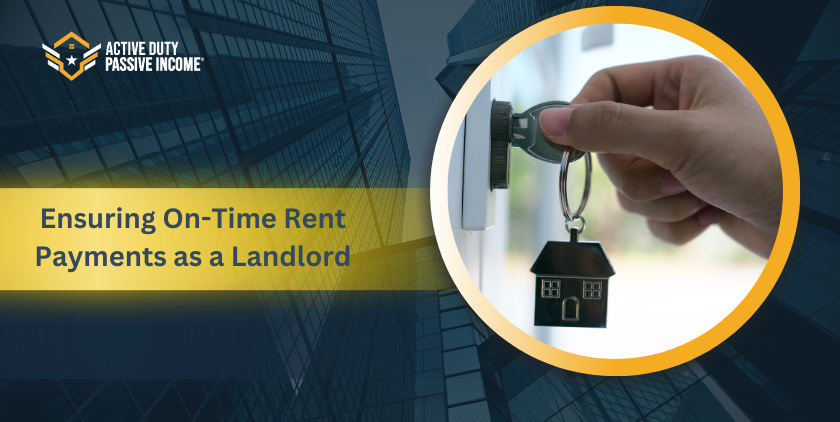As a landlord, one of the most critical aspects of managing your property is ensuring that rent payments are made promptly and consistently every month. Late or missed payments can disrupt your cash flow, strain your finances, and create unnecessary stress. To safeguard against these challenges, implementing a robust tenant screening process is essential. By carefully vetting potential tenants, you can mitigate risks and increase the likelihood of securing reliable renters who prioritize timely rent payments. In this guide, we’ll explore best practices for tenant screening to help landlords foster a positive rental experience and maintain financial stability.
Rental Application Form
Before welcoming a new tenant into your property, it’s crucial to gather comprehensive information about their background and financial status. A detailed rental application form serves as the initial step in the screening process. This form should include sections for personal information, rental history, employment details, income verification, and references. By obtaining this information upfront, landlords can gain valuable insights into the applicant’s suitability as a tenant and their ability to meet financial obligations.
Credit Check
Obtaining written consent to conduct a credit check is an essential component of tenant screening. A credit report provides valuable information about an applicant’s financial responsibility and payment history. By reviewing their credit score and payment patterns, landlords can assess the likelihood of the applicant making timely rent payments. Look for red flags such as outstanding debts, delinquent accounts, or a history of bankruptcy that may indicate financial instability.
Rental History
Contacting previous landlords is a crucial step in evaluating an applicant’s rental history. Reach out to former landlords to inquire about the applicant’s payment behavior, property maintenance habits, and any past issues or disputes. A tenant with a consistent track record of on-time payments and responsible property care is more likely to prioritize rent payments and treat your property with respect.
Employment and Income Verification
Stable employment and sufficient income are essential factors in determining a tenant’s ability to afford rent payments. Verify the applicant’s employment status and income through pay stubs, employment contracts, or tax returns. Ideally, a tenant’s monthly income should be at least three times the monthly rent to ensure they can comfortably afford the rental property.
Criminal Background Check
Safety and security are paramount when selecting tenants for your property. Conducting a criminal background check helps identify any past criminal activities that could pose a risk to other tenants or the property itself. Look for convictions related to violent crimes, drug offenses, or property damage that may raise concerns about the applicant’s suitability as a tenant.
Reference Check
Personal and professional references provided by the applicant offer valuable insights into their character and reliability. Reach out to these references to gather feedback on the applicant’s demeanor, communication skills, and overall suitability as a tenant. Pay attention to any discrepancies or concerns raised during the reference check process.
Social Media Check
In today’s digital age, reviewing a tenant’s social media profiles can provide additional context about their lifestyle and behavior. Look for any red flags or inconsistencies with the information provided on their rental application. While social media should not be the sole basis for tenant selection, it can offer valuable insights into their personality and lifestyle habits.
Interview
Conducting an in-person or virtual interview allows landlords to assess the applicant’s demeanor, communication skills, and compatibility with the rental property. Use this opportunity to ask specific questions about their rental history, employment situation, and reasons for seeking a new rental property. Pay attention to their responsiveness, honesty, and overall impression during the interview process.
Create Tenant Criteria
Establishing clear criteria for tenant selection helps ensure consistency and fairness in the screening process. Consider factors such as credit score, income-to-rent ratio, rental history, and criminal background when evaluating applicants. By defining specific criteria upfront, landlords can streamline the screening process and make informed decisions based on objective criteria.
Fair Housing Compliance
It’s essential to ensure that your tenant screening process complies with fair housing laws to prevent discrimination based on protected characteristics such as race, gender, religion, disability, or familial status. Familiarize yourself with federal, state, and local fair housing regulations to avoid potential legal issues or accusations of discrimination. Treat all applicants equally and evaluate them based on their qualifications and suitability as tenants.
Establishing clear rental policies
A well-defined lease agreement should outline all payment-related terms to avoid ambiguities. Automating rent collection can also streamline the process, reducing the likelihood of late payments. Regular communication with tenants about these policies, and any updates to property management, ensures they remain well-informed and can adhere to payment schedules.
Maintaining a healthy landlord-tenant relationship is crucial. Being responsive to maintenance requests and treating tenants with fairness fosters goodwill, which can encourage on-time payments. On the legal front, having a clear understanding of eviction processes and setting explicit policies for late payments are essential for dealing with payment issues effectively.
By integrating these strategies into property management practices, landlords can enhance their chances of securing reliable tenants and maintaining steady cash flow, ultimately reducing the hassles associated with property management.
Effective tenant screening is a cornerstone of successful property management, especially when it comes to ensuring timely rent payments. By following best practices such as thorough background checks, comprehensive application reviews, and fair housing compliance, landlords can mitigate risks and select reliable tenants who prioritize their financial obligations. Remember to continuously refine your screening process based on feedback and evolving rental market trends to maintain a positive rental experience for both landlords and tenants.








